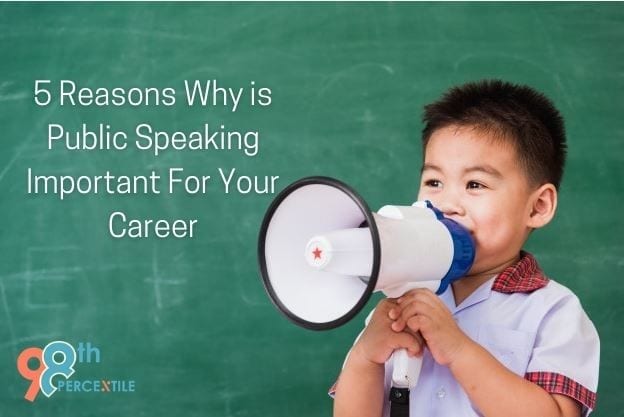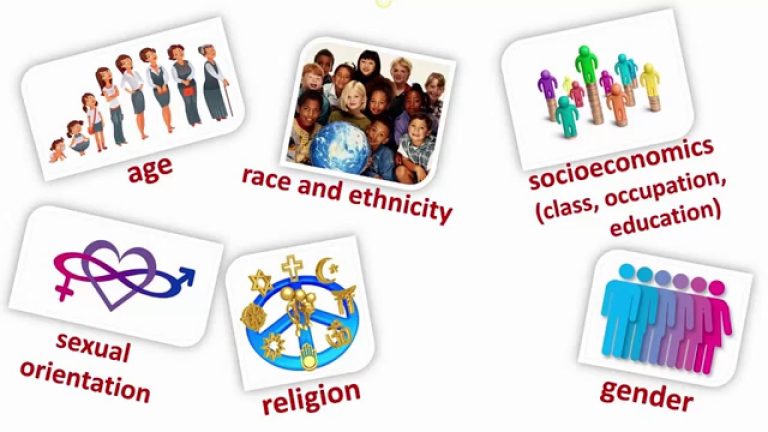Why are Humans Wired to Be Afraid of Public Speaking?
Humans are wired to be afraid of public speaking due to a combination of evolutionary factors and social pressures. Public speaking triggers the flight-or-fight response, causing anxiety and fear responses in individuals.
The fear of judgment, rejection, and the potential for embarrassment amplify this fear, making it a common phobia among people. Our ancestors relied on group acceptance for survival, making public speaking a potentially risky endeavor. Society’s emphasis on perfection and the fear of making mistakes further contribute to this fear.
Overall, humans’ innate aversion to public speaking stems from our primal instincts and the societal expectations we face. Expert guidance and practice can help individuals overcome this fear and become more confident speakers.
Evolutionary Fear Response
Humans have an innate fear of public speaking due to an evolutionary fear response, which causes heightened anxiety and stress in social situations, particularly when in front of an audience. This fear may have developed as a survival instinct to avoid potential threats or judgment from the group.
Fear As A Survival Mechanism
Public speaking triggers an innate fear response in humans, which can be traced back to our early ancestors. This fear response is highly adaptive and has evolved over millions of years to help ensure our survival.
Throughout history, humans have relied on social connections and group cooperation for protection and resources. In prehistoric times, individuals who could effectively communicate with and persuade others were more likely to gain support and resources from their group, enhancing their chances of survival. As a result, public speaking skills became intertwined with the ability to assert dominance, influence others, and maintain social standing.
In times of danger or threat, our ancestors developed a heightened state of alertness to assess the situation and respond accordingly. This innate fear response, known as the “fight or flight” response, is an automatic physiological reaction triggered by the release of stress hormones such as adrenaline. This response helped our ancestors quickly make decisions and take appropriate action in potentially life-threatening situations.
When faced with the prospect of public speaking, our bodies essentially react as if we were facing a physical threat, triggering the same fear response. Blood flow is redirected to the muscles, the heart rate increases, and the senses sharpen to prepare for potential danger. This physiological reaction is an evolutionary holdover from our ancestors, ensuring that we remain vigilant and prepared to respond to potential threats, even in a modern context.
Public Speaking As A Perceived Threat
Public speaking can be perceived as a threat because it involves putting ourselves in a vulnerable position, exposing our thoughts and ideas to the scrutiny of others. This vulnerability triggers an instinctive fear response, as we fear rejection, ridicule, or judgment from others.
Additionally, humans have an inherent need for social acceptance and validation. The fear of public speaking stems from the worry that we may not measure up to the expectations of our social group, risking social exclusion and a loss of status.
The fear of public speaking is also driven by the fear of making mistakes or being seen as incompetent. We worry that we will stumble over our words, forget important information, or fail to convey our message effectively. This fear is rooted in the desire to avoid criticism or negative evaluation from others.
Overall, the fear of public speaking is deeply ingrained in our evolutionary past and serves as a mechanism to protect us from potential harm. Understanding the roots of this fear response can help us navigate it more effectively and develop strategies to overcome our apprehension when speaking in public.
Social Judgment And Rejection
Humans are naturally wired to be afraid of public speaking due to the fear of social judgment and rejection, which stems from our innate need for acceptance and belonging within a group. The fear of being criticized or humiliated in front of others triggers our fight-or-flight response, making public speaking an anxiety-inducing task.
However, with practice and proper techniques, this fear can be overcome.
Fear Of Humiliation And Embarrassment
One of the main reasons why humans are wired to be afraid of public speaking is the fear of humiliation and embarrassment.
This fear stems from the fact that when we speak in front of a large audience, we become vulnerable to judgment and criticism. We may worry about stumbling over our words, forgetting what we want to say, or being perceived as incompetent. These thoughts can be paralyzing and induce a sense of fear.
Our primitive brain, which is wired to protect us from threats, interprets public speaking as a potential threat to our social standing. It activates our fight-or-flight response, releasing stress hormones and causing physical symptoms like a racing heart and sweaty palms.
Peer Pressure And Social Expectations
Another reason why humans fear public speaking is the influence of peer pressure and social expectations.
From an early age, we are conditioned to seek acceptance and approval from others. We want to fit in and be perceived positively by our peers and society. When it comes to public speaking, there is a fear of not meeting these expectations and being judged negatively.
Social norms dictate that we should be confident, well-spoken, and knowledgeable when presenting to others. The fear of not living up to these expectations can trigger anxiety and make public speaking a daunting task.
In addition, the fear of being seen as different or standing out from the crowd can intensify the fear of public speaking. The desire to conform and avoid rejection can create a strong aversion towards speaking in front of an audience.
Fear Of Failure
The fear of failure is a common underlying reason why humans are wired to be afraid of public speaking. This fear is deeply ingrained in our psyche and can be traced back to our evolutionary origins. It stems from the primal instinct to avoid situations where we may be vulnerable to criticism or judgment, which could have had negative consequences for our survival in ancient times.
Fear Of Making Mistakes And Being Judged
One aspect of the fear of failure when it comes to public speaking is the fear of making mistakes. Humans have a natural desire to perform well and be perceived positively by others. The thought of stumbling over words, forgetting important points, or simply not meeting expectations can be overwhelming. In addition to the fear of making mistakes, there is also the fear of being judged by others.
Humans are social beings, and our brains are wired to prioritize social acceptance and belonging. When we speak in public, we expose ourselves to the scrutiny of others, which triggers a fear of being judged. This fear stems from the potential negative consequences that could arise from being perceived in a negative light by our peers or audience.
Negative Consequences Of Failure
There are several negative consequences that humans associate with failure in the context of public speaking. These consequences vary from individual to individual but contribute to the overall fear and anxiety surrounding this activity.
One consequence is the perceived loss of credibility or authority. When we speak in public, we are often expected to demonstrate competence and expertise in our field. Failing to deliver a coherent and confident presentation can erode our credibility and make it challenging to gain the trust and respect of our audience.
Another consequence of failure is the potential damage to our self-esteem and confidence. Public speaking can be an incredibly vulnerable experience, and a poor performance can leave us feeling humiliated or inadequate. This can have a long-lasting impact on our self-image and even discourage us from taking future opportunities to speak publicly.
The fear of failure in public speaking is a deeply-rooted instinct that humans have developed over time. It is driven by our desire for social acceptance, the fear of making mistakes, and the negative consequences we associate with failure. Acknowledging and understanding these fears is the first step towards overcoming them and becoming more confident in public speaking.
Self-consciousness And Insecurity
Humans often experience self-consciousness and insecurity when it comes to public speaking, as they are wired to fear judgment and criticism. This fear stems from a deep-rooted instinct to protect one’s social status and avoid potential embarrassment or failure in front of others.
Feeling Vulnerable In Front Of An Audience
One of the main reasons why humans are wired to be afraid of public speaking is the feeling of vulnerability that arises when standing in front of an audience. It’s natural for individuals to feel exposed when all eyes are on them, and this can trigger intense feelings of anxiety and self-consciousness. The fear of judgment, criticism, or making a mistake becomes magnified in this situation, leading to a heightened sense of insecurity.
Comparisons And Self-doubt
In addition to feeling vulnerable, humans often engage in comparisons and self-doubt when faced with public speaking. It’s all too easy to look out at the audience and start questioning one’s own abilities or qualifications. Negative self-talk creeps in and whispers thoughts like, “What if I’m not knowledgeable enough?”, “What if someone in the audience knows more than me?”, or “What if my ideas are not as good as others?” These self-doubts can undermine confidence and intensify the fear of public speaking.
Cognitive Biases And Irrational Fears
Humans have an innate fear of public speaking due to cognitive biases and irrational fears. Our wired nature leads us to anticipate negative judgment and potential embarrassment, which triggers anxiety and apprehension in such situations.
Magnification Of Negative Outcomes
One of the reasons why humans are wired to be afraid of public speaking is the tendency to magnify negative outcomes. Our minds have a natural inclination to focus on what could go wrong, which can create an exaggerated sense of fear and anxiety.
This cognitive bias, known as magnification, causes us to imagine worst-case scenarios and overestimate the potential consequences of speaking in front of a group. We may fear stumbling over our words, forgetting what to say, or facing ridicule and embarrassment.
This fear is often irrational and disproportional to the actual risk involved. While any negative outcome may feel catastrophic in our minds, in reality, the consequences are usually much less severe. By magnifying the negative outcomes, we inadvertently feed our fear and make public speaking seem scarier than it truly is.
Fears Of Judgment And Criticism
Another common cognitive bias that contributes to our fear of public speaking is the fear of judgment and criticism. Humans have an innate desire to be accepted and valued by others, which makes the thought of being scrutinized and evaluated in front of a crowd highly uncomfortable.
This fear stems from our evolutionary past, where being included in a social group meant survival. Rejection and criticism could have meant isolation and exclusion, which were detrimental to our well-being. As a result, our brains have developed a sensitivity to potential threats to our social standing.
When we step on a stage or stand in front of a group, our minds perceive this as a threat to our social status. We fear judgment from others, worrying that they will find fault in our performance or opinions. This fear of being evaluated and criticized triggers anxiety and can hinder our ability to speak confidently and effectively.
In summary, cognitive biases and irrational fears play a significant role in why humans are wired to be afraid of public speaking. The tendency to magnify negative outcomes and the fear of judgment and criticism can cause us to feel anxious and apprehensive in front of a crowd. Recognizing and understanding these biases can help us manage our fear and develop the skills necessary to become more confident public speakers.Frequently Asked Questions For Why Are Humans Wired To Be Afraid Of Public Speaking?
Why Do Humans Feel Nervous When Speaking In Public?
Public speaking triggers our primal fight-or-flight response, causing nervousness due to the fear of judgment and rejection.
How Can I Overcome My Fear Of Public Speaking?
To overcome the fear of public speaking, practice regularly, prepare well, visualize success, and focus on the message rather than the audience’s reaction.
Can Public Speaking Anxiety Be Overcome?
Yes, public speaking anxiety can be overcome through gradual exposure, seeking support from others, positive self-talk, and utilizing relaxation techniques.
Conclusion
To conclude, our innate fear of public speaking can be rooted in evolutionary biology, social pressures, and the fear of judgment and rejection. Understanding the underlying reasons behind this fear can help us develop strategies to overcome it. By utilizing effective techniques such as practice, visualization, and deep breathing, we can gradually build confidence and conquer our fear.
Remember, it is within all of us to become proficient public speakers with time and practice.


